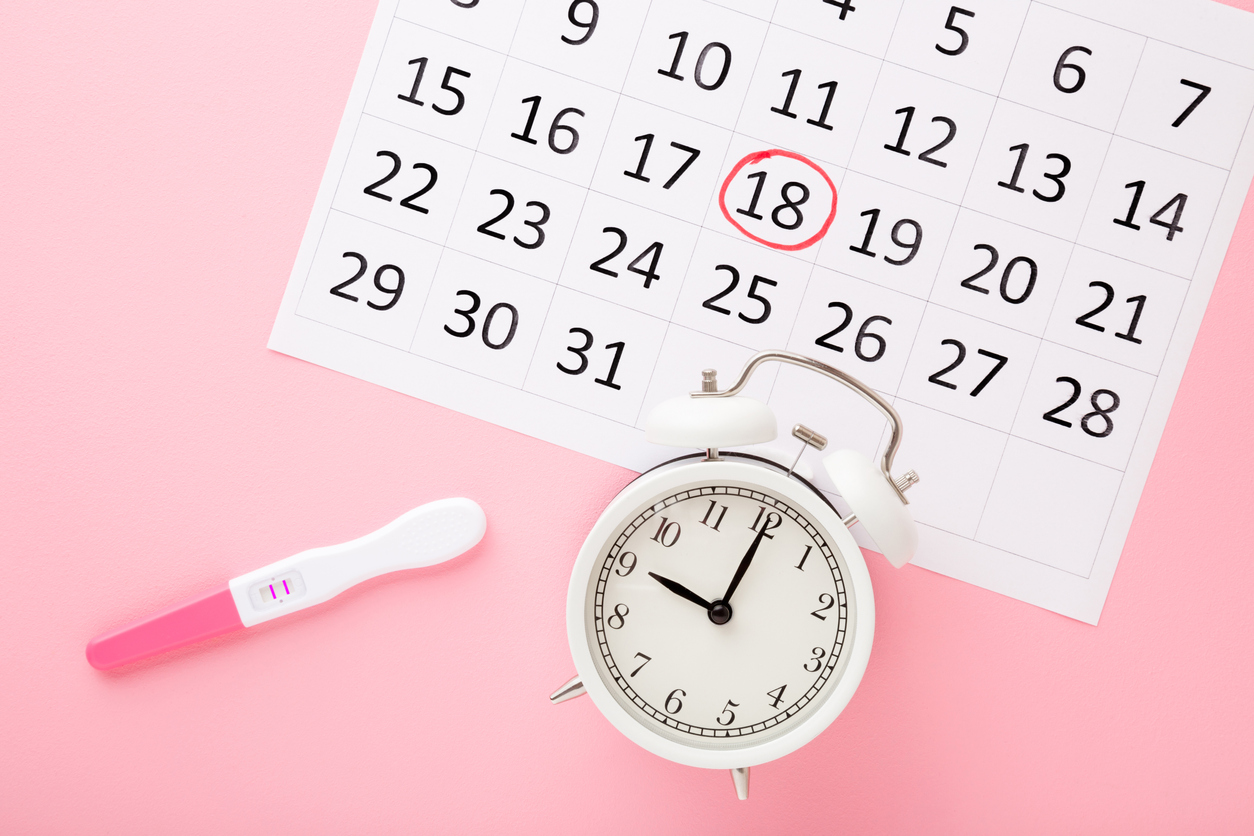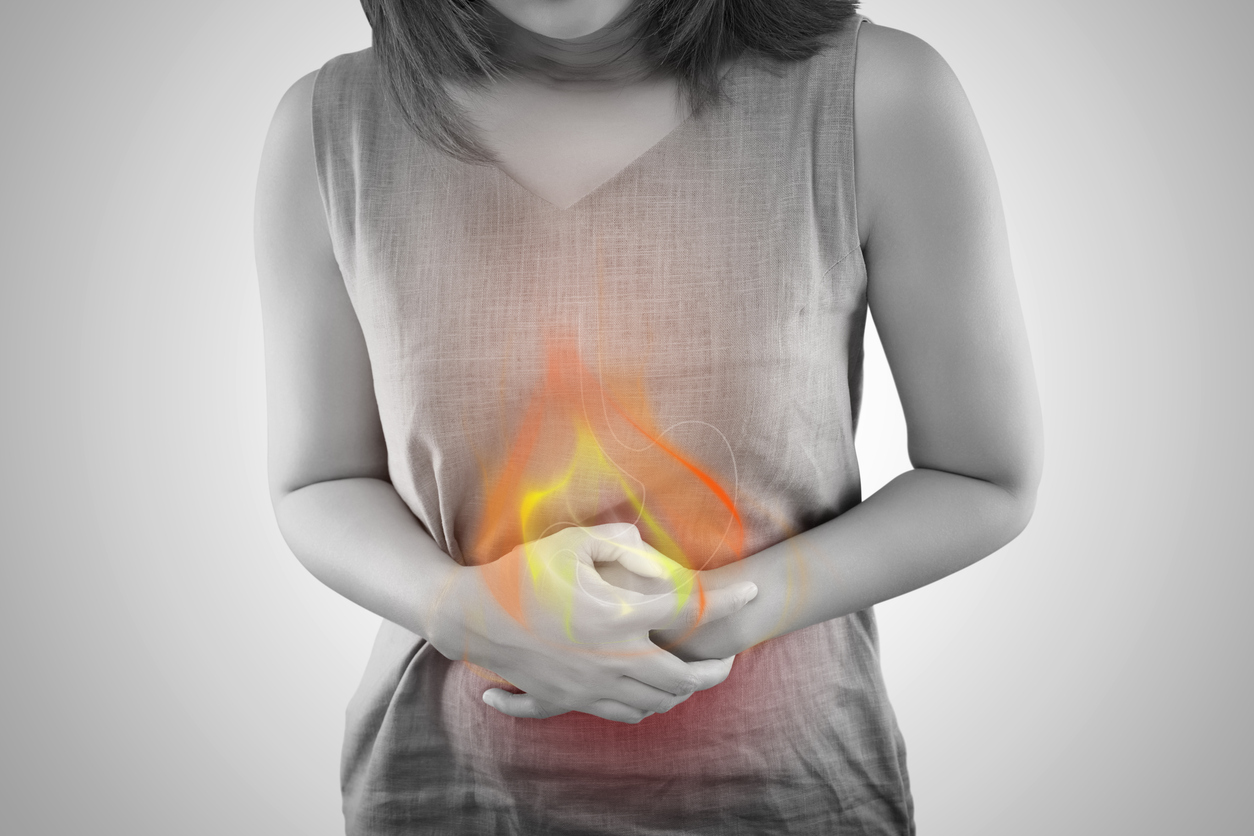The popular belief is that ovulation and periods naturally go together, but that is not entirely true, there are some rare cases where you can ovulate without periods. If you are someone suffering from PCOS or suffering from other hormonal disorders that cause irregular periods, you may ovulate without periods. Similarly, in such abnormal conditions, it is possible that you may not ovulate even if you do bleed every month and this is called an anovulatory cycle.
Understanding Ovulation and Menstruation
To understand why in certain situations you may ovulate without a period you must first know what ovulation and menstruation are. The interval from the first day of bleeding to the next first day of bleeding is called a menstrual cycle and normally a woman’s menstrual cycle lasts for about 23–30 days. The exact length of the menstrual cycle may vary from woman to woman and from month to month, but it would fall between this time frame. An egg is released in a woman’s ovaries every month just 12–16 days before her menstrual cycle begins and this period is called the luteal phase.
Your period
Your period starts on the first day of your menstrual cycle and your period can last between 3 and 7 days. The first day of your menstrual cycle is the first day of your period (day 1 of full flow). The period usually lasts from 3 to 7 days. You’ll probably find that if you get period pains, they’ll be at their worst at the beginning of your menstrual cycle. This is because the hormones in your body are causing your uterus (womb) to actively shed the lining that was built up in the previous menstrual cycle.
Preparing for ovulation
At the beginning of your cycle, follicle-stimulating hormone (FSH) is produced by the pituitary gland in your brain. This is the main hormone involved in stimulating your ovaries to produce mature eggs. Follicles are the fluid-filled cavities in your ovaries. Each follicle contains one undeveloped egg. The FSH stimulates several follicles to develop and start to produce the hormone estrogen. Your level of estrogen is at its lowest on the first day of your period. From then on, it starts to increase as the follicles grow.
While several follicles initially begin to develop, normally only one follicle becomes “dominant” and this egg matures within the enlarging follicle. The remaining follicles do not continue to grow and gradually disappear. At the same time, the increasing amount of estrogen in your body ensures that the lining of your uterus (called the endometrium) is thickening with nutrients and blood. The goal is to create the optimal environment for the fertilized egg, making sure it will have all the nutrients and support it needs to grow. High estrogen levels are also associated with the appearance of ‘sperm-friendly’ mucus that is produced by the cervix (also called fertile cervical mucus). You may notice this as a thin, slippery discharge that may be cloudy and white in color. Sperm can swim more easily through this type of mucus and can survive in it for several days.
The level of estrogen in your body is still increasing and it eventually causes a rapid rise in luteinizing hormone (the ‘LH surge’) from the brain. This LH surge causes the dominant follicle to rupture and release the mature egg from the ovary to where it enters the fallopian tube. This process is known as ovulation.
Many women think that they ovulate on day 14, but 14 is an average, and most women will actually ovulate on a different day of the menstrual cycle. Your day of ovulation may vary from cycle to cycle. Some women claim to feel a twinge of pain when they ovulate, but many feel no sensation at all and there’s no other sign that you are ovulating.
Once the egg has been released, it moves along the fallopian tube toward your uterus. The egg can live up to 24 hours and sperm can survive in the uterus for 3–5 days. So the days leading up to ovulation and the day of ovulation itself are your most fertile – when you are most likely to get pregnant. As soon as you have ovulated, the follicle starts producing another hormone called progesterone.
Progesterone causes a further buildup of the endometrial (uterus) lining in preparation for a fertilized egg. Meanwhile, the empty follicle within the ovary called the corpus luteum, starts to shrink, but continues to produce progesterone and starts to produce estrogen. You may get premenstrual symptoms (PMS) such as breast tenderness, bloating, lethargy, depression and irritability at this stage due to these hormones.
Ovulating Without a Period
Fortunately, it is possible to conceive if you have irregular periods. Difficulty with conception isn’t uncommon, and learning more about your unique cycle can only help.
While it’s crucial to consult with your OBGYN about any health concerns, there are some things you can do to understand your reproductive cycle, increase your likelihood of conceiving and prep your body for a healthy pregnancy.
PCOS and Missed Periods
PCOS can cause irregular periods and may even entirely stop them from occurring. An ‘irregular’ period cycle is fewer menstrual cycles per year than average women. So even though it’s perfectly normal to experience periods that are a day or two late, it could be a sign of PCOS if your periods are consistently irregular.
The average menstrual cycle lasts 28 days, but anything between 21 and 35 days is considered normal. Cycles lasting eight or fewer per year, or more than 35 days, are considered irregular periods.
One of the main reasons why people with PCOS are unable to conceive is a condition known as amenorrhea. After all, if there are no periods, no egg is released as part of a menstrual cycle. As a result, ovulation may completely cease as menstrual cycles lengthen (a condition known as anovulation) or happen infrequently. Additionally, some PCOS patients have irregular menstrual cycles with stronger or lighter flows.
Regular periods prevent the excessive thickness of the uterus lining (womb). Having irregular periods might cause the womb to fill with abnormal cells. It is critical to have at least four cycles annually to prevent a buildup of abnormal cells.
Talk to your doctor if you have fewer than four periods each year. Keeping track of your cycle will help you calculate how long it has been since your last period. Consult a gynecologist so they can look into the cause if you find that there is a three-month gap between cycles.
Related PCOS symptoms
Weight Gain
Yes, weight gain is one of the many possible symptoms associated with PCOS. Most women with PCOS are insulin resistant which means the body cannot utilize glucose effectively. This can cause weight gain, especially around the abdominal region.
Mental Health Disorders
Yes. Studies have found that depression and anxiety are more prevalent in women with PCOS.
The reasons for this are complex, as noted in a study in the Indian Journal of Psychological Medicine. Causing undesirable physical side effects to potential infertility, PCOS “can be deeply stigmatizing to women. In a qualitative study on the subjective experience of PCOS, women described it as feeling robbed of their self-concept, the essence of being feminine and attractive.
Infertility
PCOS is the most common cause of infertility in women. The hormonal imbalances interfere with ovulation, leading to irregular or completely skipped periods, making it difficult or impossible to get pregnant. However, some treatments can help restore ovulation and improve one’s chances of pregnancy.
How To Seek Medical Advice
Contact a healthcare provider if you suspect you have PCOS. If you have been trying to get pregnant for more than a year but haven’t been successful, you should speak to a doctor to understand the root problem. Some signs that may point to PCOS include:
- An irregular menstrual cycle. Menstrual cycles that are often long (longer than 40 days between periods).
- Excess hair growth, acne, or other signs of excess androgen hormones.
- Difficulty getting pregnant.
Learn More With Veera
At Veera Health we focus on the well-being of our patients. If you too are someone struggling with irregular periods and PCOS you can book a free appointment with Veera Health experts.


















